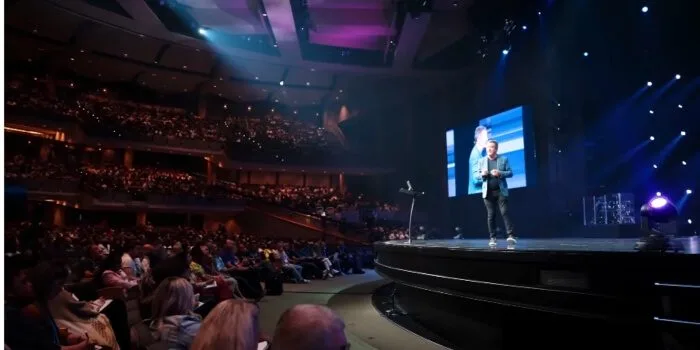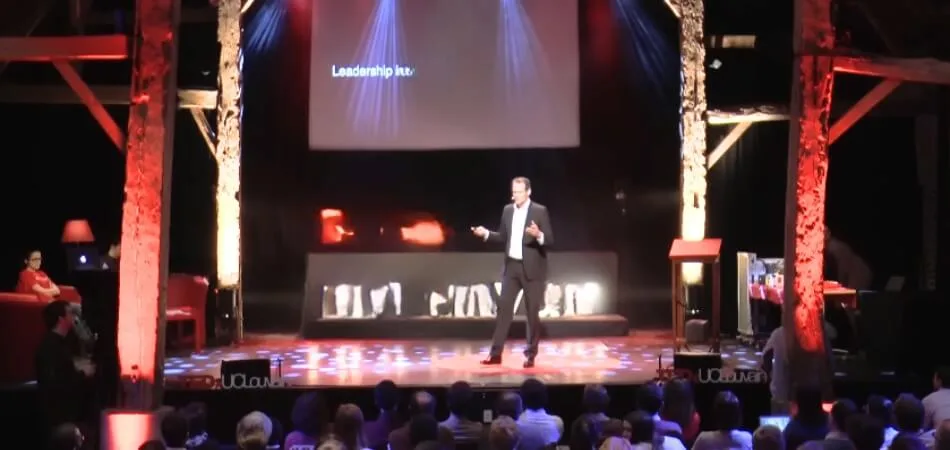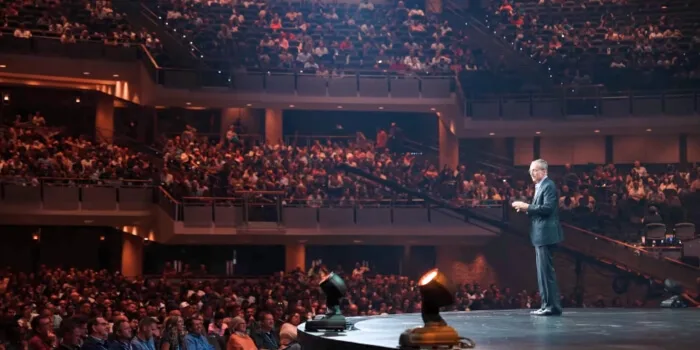Leadership conferences are highly interactive events designed to inspire and develop leaders by offering a mix of expert insights and collaborative learning experiences. These conferences bring together professionals who are seeking to grow and connect. But have you ever imagined, what makes a good leadership conference?
Leadership conference based on a well-crafted agenda, diverse and engaging speakers, interactive sessions, and valuable networking opportunities. By encouraging active participation and focusing on a clear purpose, a great leadership conference ensures a meaningful and impactful experience for attendees.
Additionally, follow-up resources promote ongoing learning and growth. Curious to know more about how these elements work together to create a standout conference? Follow the rest of the article to dive deeper into each key component.
The Purpose of a Leadership Conference
A leadership conference is designed to inspire individuals to grow as leaders and improve their skills. It brings people together to learn new strategies, share experiences, and explore effective leadership methods. These conferences provide a platform for both personal and professional development. Those who attend leave with practical tools to make their leadership stronger.
Leadership conferences also encourage collaboration and networking among professionals from diverse backgrounds. During the conference, participants exchange ideas and discuss challenges together. This sharing of knowledge helps leaders grow and adapt to new challenges in their careers. It’s good to build connections with peers so you can get support and keep learning.
Another key purpose is to provide actionable insights that leaders can apply immediately. Besides that, the conference’s workshops and sessions offer hands-on learning and case-based problem-solving. In addition to gaining new perspectives, attendees gain new ideas that can be applied to their teams or organizations. Ultimately, leadership conferences aim to create lasting, positive impacts for individuals and their businesses.
What are the Different Types of Leadership Conferences?
Leadership conferences come in various types, each designed to meet to different needs and goals.
Below are some common types of leadership conferences:
- Industry-Specific Conferences: These conferences focus on leadership within a specific industry, such as technology, healthcare, or finance. They provide insights into industry trends, challenges, and best practices.
- General Leadership Conferences: These events are open to leaders across all industries. They cover universal leadership topics such as communication, team building, and strategic planning.
- Women’s Leadership Conferences: Focused on empowering female leaders, these conferences address unique challenges faced by women in leadership roles and promote gender diversity in the workplace.
- Youth Leadership Conferences: Aimed at nurturing the next generation of leaders, these conferences provide young individuals with the tools and knowledge to develop their leadership skills early in their careers.
- Executive Leadership Conferences: Designed for top-level executives, these conferences explore into advanced leadership topics, such as corporate governance, innovation, and global strategy.
Each type of leadership conference offers a unique opportunity for personal and professional growth, allowing leaders to connect, learn, and evolve. If you’re looking to raise your skills, find a good leadership conference that aligns with your goals and needs.
How Important Are Leadership Conferences for Aspiring Leaders?
Leadership conferences are invaluable for aspiring leaders looking to make their mark. Here are a few reasons why leadership conferences are so important.
Networking Opportunities
Leadership conferences are a goldmine for networking. Aspiring leaders can connect with experienced professionals, mentors, and peers who can provide guidance and support on their leadership journey.
Skill Development
These conferences offer workshops and sessions that cover essential skills like communication, decision-making, and team management. These skills are crucial for anyone looking to lead effectively.
Inspiration and Motivation
Another incredibly inspiring thing is to hear success stories and insights from accomplished leaders. It motivates aspiring leaders to set higher goals and pursue their ambitions with renewed vigor.
Exposure to New Trends
We live in an ever-changing world of leadership. Conferences provide a platform to learn about the latest trends and innovations in leadership, helping attendees stay up-to-date.
Personal Growth
Leadership conferences often encourage self-reflection and personal development. Aspiring leaders can gain a deeper understanding of their strengths, weaknesses, and areas for improvement.
Conferences like these are vital tools for aspiring leaders. Their unique combination of networking, learning, and inspiration can propel individuals forward in their leadership journeys. So it is necessary to know the benefits of participating in leadership conferences to increase the growth and success of aspiring leaders.
What Makes a Good Leadership Conference?
Have you ever wondered what makes an ordinary leadership conference extraordinary? It’s not just about gathering a crowd and having a few speakers on stage.
A truly impactful leadership conference is a well-oiled machine with several key components working in harmony. It’s a blend of a solid agenda, advanced preparation, engaged participants, and a clear purpose.
Here are a few factors to consider.
Solid Agenda
A good leadership conference has a well-structured agenda that is both comprehensive and engaging. It should cover a variety of topics relevant to leadership, including keynote speeches, workshops, panel discussions, and networking sessions.
The agenda should be designed to adhere to different learning styles and provide ample opportunities for interaction and engagement.
Advanced Preparation
Preparation is key to the success of any conference. This includes everything from selecting the right venue and speakers to ensuring that the technology and logistics are in place.
Attention to detail in the planning stage can make a significant difference in the overall experience for the participants.
Engaged Participants
The energy and enthusiasm of the participants play a crucial role in the success of a leadership conference. Creating an environment that encourages participation, interaction, and networking can lead to a more dynamic and fruitful event.
Engaged participants are more likely to absorb the content, contribute to discussions, and leave the conference feeling inspired and motivated.
Clear Purpose
A good leadership conference has a clear and defined purpose. Whether it’s to inspire, educate, or connect leaders, having a clear goal helps to guide the content and structure of the event. It also provides a benchmark for measuring the success of the conference.
Diverse Speaker Lineup
It is crucial to have a diverse lineup of conference speakers to provide different perspectives and insights on leadership. Speakers should be experts in their fields, with a mix of established leaders and emerging voices.
This diversity enriches the learning experience and ensures that participants are exposed to a wide range of ideas and strategies.
Interactive Sessions
Interactive sessions, such as workshops and Q&A panels, allow participants to engage more deeply with the content. These sessions provide opportunities for hands-on learning and direct interaction with speakers, making the conference experience more personalized and impactful.
Networking Opportunities
Networking is a key component of any leadership conference. Providing structured opportunities for participants to connect with each other, such as networking breaks, social events, and group activities, can lead to valuable collaborations and partnerships.
Follow-up and Feedback
A good leadership conference doesn’t end when the last session is over. Follow-up is important to maintain the momentum and continue the learning journey. Providing participants with resources, such as session recordings and additional reading materials, can help reinforce the key takeaways. Additionally, gathering feedback from participants can provide insights for improving future conferences.
A good leadership conference is much more than just a series of talks. It’s a carefully planned and executed event that provides a rich learning environment for leaders to grow, connect, and be inspired.
Hosting a Leadership Conference: How Do You Prepare for it?
Organizing a leadership conference requires careful planning and execution. A well-organized conference can provide valuable insights and networking opportunities for participants. Here’s a step-by-step process to help you prepare effectively:
Step 1: Define Your Goals and Objectives
Begin by identifying the purpose of the conference. Determine the key messages and outcomes you want to achieve. Clearly defined goals will guide the planning process and help measure success later. Consider your target audience when setting these objectives.
Step 2: Create a Budget
Establishing a budget is crucial for effective planning. Include all potential expenses, such as venue rental, catering, and speaker fees. Be sure to allocate funds for marketing and promotional activities as well. Keeping track of expenses will help you stay within your budget throughout the process.
Step 3: Choose a Suitable Venue
Selecting the right venue can significantly impact the conference experience. Look for a location that is accessible and can accommodate your expected number of attendees. Ensure that the venue has the necessary facilities, such as audio-visual equipment and breakout rooms. A comfortable environment will increase participation and engagement.
Step 4: Develop the Agenda
Craft a detailed agenda that balances presentations, workshops, and networking opportunities. Include sessions that align with your conference goals while appealing to the interests of your audience. Having a mix of formats will keep participants engaged throughout the event. Share the agenda well in advance to build excitement.
Step 5: Recruit Speakers and Facilitators
Identify and invite speakers who are experts in their fields. Look for individuals who can share valuable insights and experiences related to leadership. Having different perspectives will enrich the conference content and engage participants effectively. Ensure that speakers align with the conference’s objectives.
Step 6: Promote the Event
Effective promotion is essential for attracting attendees. Utilize various channels, including social media, email newsletters, and industry networks. Highlight the benefits of attending and provide clear registration details. Engaging marketing efforts will help you reach your target audience and ensure a successful turnout.
By following these steps, you can successfully manage the process of hosting a leadership conference. To ensure a valuable experience for all participants, each phase requires careful attention to detail.
These steps are vital for creating a leadership conference that leaves a lasting impact on your attendees.
FAQs About What Makes a Good Leadership Conference?
Do you want to know what makes a leadership conference stand out? Leadership conferences offer unique opportunities for learning, networking, and personal growth. Here are some frequently asked questions to help you understand their value:
What Is the Purpose of a Leadership Conference?
Leadership conferences provide attendees with tools, strategies, and insights to improve leadership, boost productivity, and drive organizational success. They offer a platform for learning, professional development, and networking with peers and industry experts.
What Do You Learn from Leadership Conferences?
Leadership conferences cover topics like team management, communication, and personal development. Attendees gain actionable strategies for effective leadership, alongside insights into self-growth, making them more capable and adaptable leaders.
How Can a Leadership Conference Impact Your Career?
Attending a leadership conference can boost your career by exposing you to fresh ideas, expanding your professional network, and refining your leadership skills. It helps you stay competitive and valuable in your organization.
What Are the Key Elements of a Successful Leadership Conference?
A successful leadership conference features a clear purpose, engaging and relevant content, diverse speakers, and plenty of networking opportunities. It should leave participants feeling inspired, informed, and well-connected for future growth.
How Do You Choose the Right Leadership Conference to Attend?
Selecting the right leadership conference involves assessing your personal and professional goals. Look for conferences that align with your interests, industry, and the skills you wish to develop. Research the agenda, speaker lineup, and attendee feedback to ensure it will meet your expectations.
What Should You Expect During a Leadership Conference?
Attendees can expect a mix of keynote speeches, workshops, and interactive sessions at a leadership conference. These events often include networking opportunities, panel discussions, and Q&A sessions, providing a dynamic environment for learning and sharing ideas. It’s an immersive experience designed to foster growth and connection.
Final Thought
The key to a successful leadership conference lies in careful planning and execution. So, what makes a good leadership conference? It’s the combination of a solid agenda, engaged participants, and a clear purpose.
To make the most of your experience, choose conferences that align with your goals and interests. And don’t forget to network! Connecting with like-minded professionals can lead to valuable opportunities and insights.
So, the next time you attend a leadership conference, remember these tips and make the most of this enriching experience.








